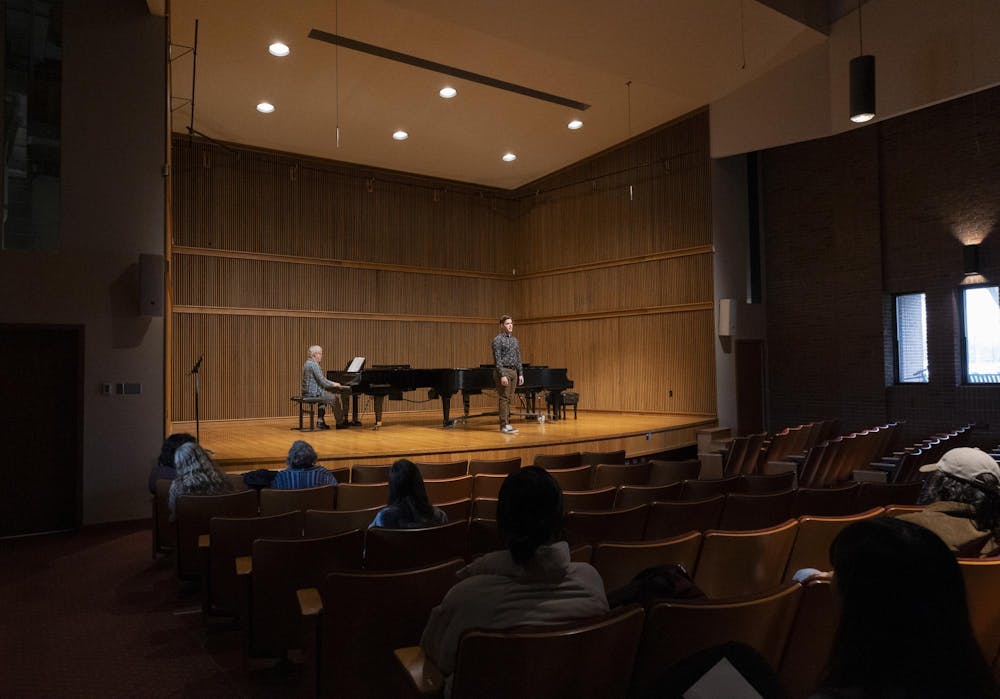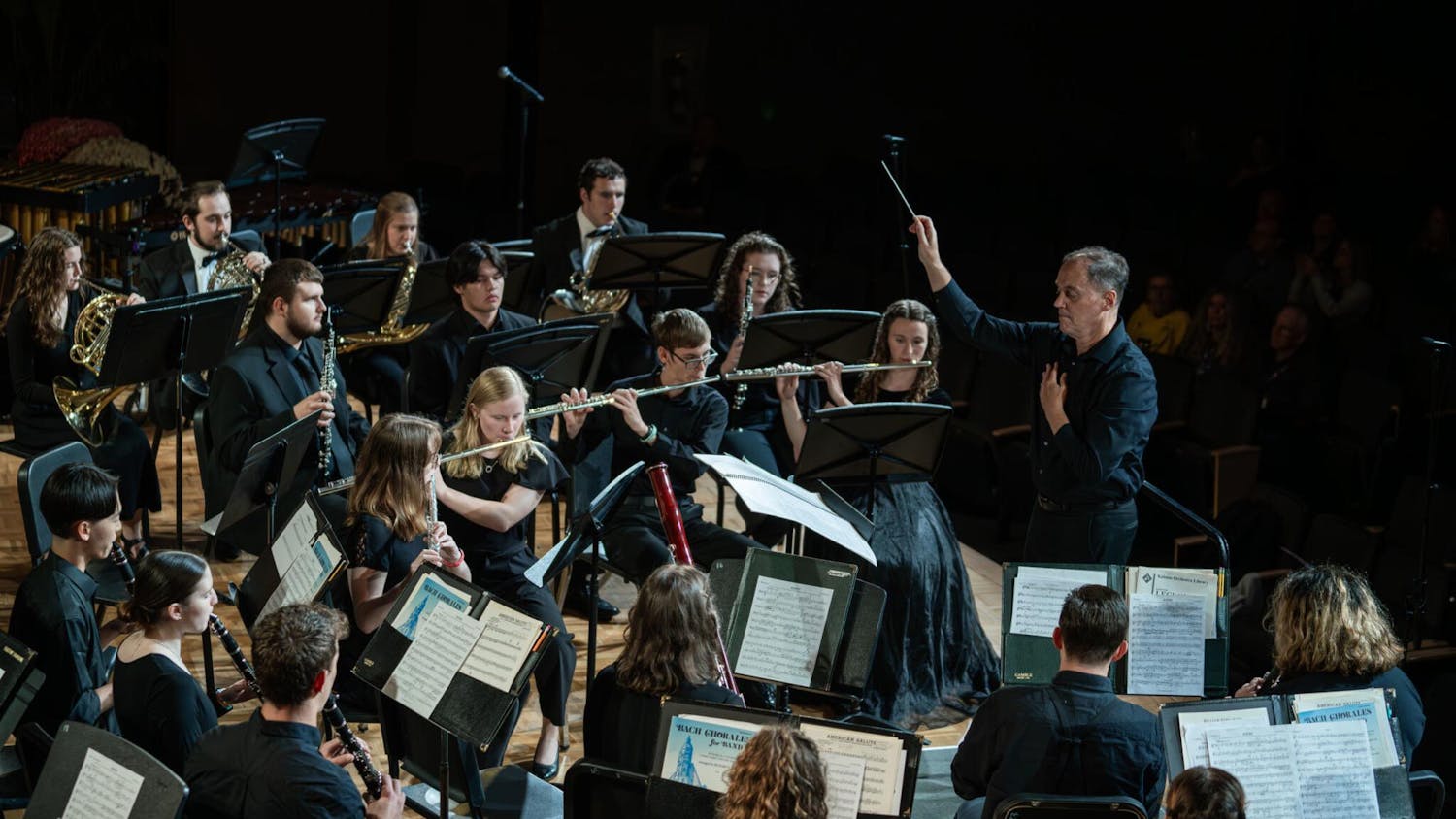On Fridays at noon, a unique music class has inhabited the space of the recital hall in the Smith-Hermanson Music Center.
Known as a performance class, it is a place for students to showcase what they have been working on in their music lessons.
The course is distinct in that multiple professors host it so that students can gain experience performing in front of a live audience.
Conor Angell, department co-chair and professor of music lyric theater & voice, said that the class is designed to help music majors perform on stage despite their nerves. Music majors, musical theater majors and music minors are required to attend a certain number of times per semester.
The class is set up so each person performs on stage twice per semester, said Shelby England, a freshman Worship Arts minor. Students can choose when they perform, so class attendance is optional.
England enjoys the opportunity that the class provides for her. She never thought she would be excited to perform, but it has challenged her to share without comparing herself to other students participating.
England also talked about the experience of hearing others perform and how important it is to her.
"It's a really good opportunity to see my peers and to listen to them perform their singing pieces or their instrumental pieces," she said.
Angell explained some of the benefits of the performance class for students.
"Students get to grow through it,” he said. “It's a little bit of a crucible, like it's different, a difficult thing to do. But they start to see the benefit, and they're very encouraging to one another."
Hayley Mordecai, a senior vocal performance major, enjoys hearing other students performing and sharing music with them. She believes that is what music is—something that brings people together.
"It definitely helps all of the music people get closer in a way,” Mordecai said. “Just like hearing each other's voices, seeing what we do in each other's lessons, and bonding over how nervous we get.”
England emphasized the community in the Department of Music, Theatre and Dance and how supportive it is. In this place, the love of people goes far beyond people’s talents, she said.
Nerves are a part of performing, but students learn to confront those emotions and still go through with it as an offering of love to their neighbor and God, Angell said. Performers are sharing something beautiful that they have worked hard on, and while they might be nervous, the class helps train them to handle those nerves.
Angell discusses his students' performances with them after they present in a way that urges them to think objectively and assess the good and the bad.
“There's always a goal towards celebrating things that went well and moving forward into greater growth and the things that are incomplete,” he said.
Mordecai said her least enjoyable thing about performance class is that most musicians are really self-critical. In the class, she doesn’t usually hear people criticizing other people, but rather being hard on themselves. It is something that is sad, and she said she wishes to change it.
The first time performing is difficult, but Angell has witnessed his students' growth in the performance class from the initial stages of panic and worry. They have been able to grow in technique and confidence and see progress throughout their years at Taylor University.
“Performance class serves as a great opportunity for numerous students at the music building,” England said. “Not only does it push them to get out of their comfort zones, but it provides a great platform for students to share their gifts and talents with other students and faculty and to grow in their confidence as musicians.”





